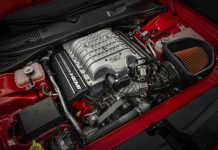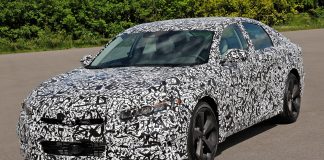General Motors plans to establish a new defense industry unit as it seeks “to grow its business” with the U.S. military… by feeding off the American taxpayer.
Why sell cars – when you can force people to give you money instead?
The company said last week it is holding talks with the U.S. Army about adopting the company’s new hydrogen fuel cell platform for military use, and has other defense projects in the works.
GM Defense LLC is expected to become part of the company’s Global Product Development organization, marking a major return to defense work after selling a previous defense unit to General Dynamics Corp. for $1.1 billion in 2003. Anticipating needs
The operations, according to officials, will be focused on “helping GM better anticipate and react to the diverse needs of global aerospace and defense customers.”
Freese will oversee GM Defense as part of Global Product Development, which is led by Mark Reuss, GM vice president of Global Product Development, Purchasing and Supply Chain. The company has not determined where the defense unit will be based, said GM spokeswoman Elizabeth Winter.
GM currently provides powertrain components such as engines and transmissions to the military, but of late it has expanded its potential military offerings. The automaker has at least three hydrogen fuel cell products under evaluation by U.S. military divisions, including the new commercial platform with automated driving capabilities.
GM said last week that it is in discussions with the Army Tank Automotive Research, Development and Engineering Center about the Silent Utility Rover Universal Superstructure (SURUS) platform. The company said SURUS could be “a next step of the broader collaboration to evaluate fuel cell technology for future military applications.”
In addition to the fuel cell-powered, four-wheel concept, the Army has been testing a fuel cell-powered Chevrolet Colorado known as the ZH2 on U.S. bases since April. The U.S. Navy last year also unveiled a GM fuel cell-powered unmanned undersea vehicle for testing.
GM officials say SURUS, based on a heavy-duty truck frame, was designed as a “foundation” for a new generation of commercial vehicles that leverages a single propulsion system integrated into a common chassis. They say it was not specifically designed for military use.
“This is our commercial fuel cell solution that we think will solve real-world, near-term problems,” Freese told reporters last week during a preview of SURUS in Warren, Mich.
The platform will be at the meeting of the Association of the U.S. Army this week in Washington, D.C.











Junk not selling in a consumer market? Put it into the MIC market where sales are guarantied.
Hi Skunk,
Have a look at the new lead article, just posted.
“This is our commercial fuel cell solution that we think will solve real-world, near-term problems,” Freese told reporters last week during a preview of SURUS in Warren, Mich.
The real-world, near-term problem this solves is that Chuck will continue to receive a paycheck.